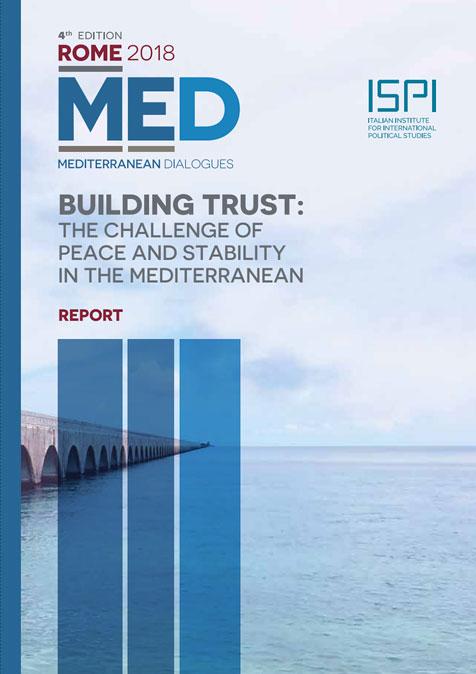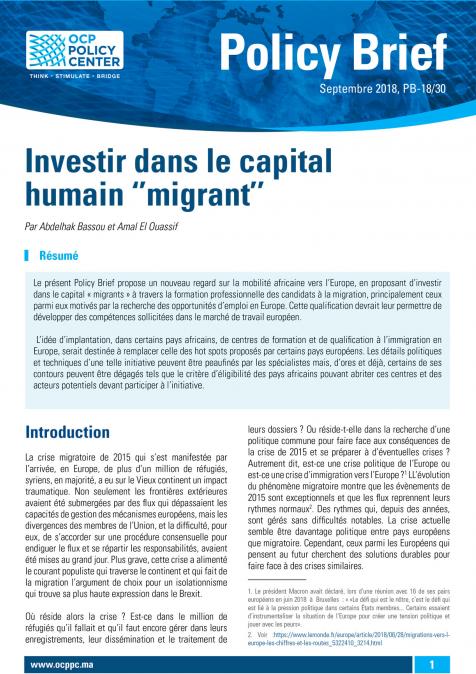Publications /
Opinion
When in early March, Italian Prime Minister Giuseppe Conti declared a lockdown in his nation, and urgently requested help from his European partners—medical equipment for hospital staff, including gloves and protective clothing, and ventilators, and testing kits—it took several days before there was a response.
The BBC reported actions by Germany, France and the Czech Republic which “caused unease, when they decided to block exports of emergency equipment to neighbors in need, until they had finished in counting up what stocks they had. Even the usually conciliatory Belgian health minister Maggie de Block stated that it seemed ‘deeply against the idea of a united Europe and fundamentally against the spirit of solidarity’”.
Meanwhile, Poland closed its borders with Germany, France stopped traffic from Spain, Denmark from Germany, Austria from Italy, Italy from Greece, and both of the latter nations informed ships trying to save migrants from drowning in the Mediterranean Sea that they would no longer accept any landings in their harbors. “A crisis without borders”, declared Ursula von der Leyen, President of the European Commission in Brussels, in the European Parliament in March, “cannot be resolved by putting barriers between us. And yet, this is exactly the first reflex that many European countries had. This simply makes no sense, because there is not one single member state that can meet its own needs when it comes to vital medical supplies and equipment”. Urgently-needed equipment “was stuck in bottlenecks,” von der Leyen said. “When Europe really needed to be there for each other, too many initially looked out for themselves. When Europe needed an ‘all for one’ spirit, too many initially gave an ‘only for me’ response. And when Europe really needed to prove that this is not only a ‘fair weather Union’ too many initially refused to share their umbrella.” Almost three weeks later the European leader repeated her criticism: “Yes, it is true that no one was really ready for this. It is also true that too many were not there on time when Italy needed a helping hand right at the very beginning. For that, it is right that Europe as a whole offers a heartfelt apology”—more than 20,000 Italian victims later.
Andrea Kendall-Taylor, Director of the Transatlantic Security Program at the Center for a New American Security, and Carisa Nietsche, a research associate, argued in a paper published by Foreign Policy (April 16) that Italy’s experience of coronavirus and the response could influence the development of populism by “both costing the populist parties of the moment support and potentially pushing these parties to adopt more nationalist and overtly authoritarian positions”. The authors pointed out that public support for the Italian right-wing populist, former minister of the interior Matteo Salvini, has fallen to its lowest point since July 2018, while in Germany, Angela Merkel’s party, the Christian Democratic Union (CDU), is climbing in the polls, because the pandemic is also “renewing faith in mainstream political parties and experts”. In a recent opinion poll carried out by German TV broadcaster ZDF, an overwhelming 80% approved Merkel’s handling of the crisis.
In this context, the German right-wing party, Alternative for Germany (AfD), is hardly breaking into double digits, and is indeed measured at 9% support in some surveys. “Populist leaders, not just in Europe but also further afield—from Brazil to Indonesia—have failed to adequately respond to the crisis”, argue Kendall-Taylor and Nietsche. The coronavirus is “exposing the empty rhetoric” of right-wing populist parties and their leaders, “underscoring the need for competent and capable government”, and “many existing populist parties and leaders are likely to suffer”. In Italy, Salvini, leader of the populist Lega party, has resorted to spreading debunked conspiracy theories about the origins of the virus, circulating a video of “a migrant ship arriving in Italy, falsely implying that migrants were responsible for the outbreak”.
But in another Foreign Policy article (April 14), Emily Schultheis argued that right-wing populists “are struggling for relevance at the moment, but they may find more fertile ground for their message once the immediate threat of the virus recedes. As the discussion shifts to the economic destruction the coronavirus will undoubtedly leave in its wake, the far right will surely seek to capitalize on thorny issues surrounding EU aid for harder hit member states”. Salvini will almost certainly focus on the “initial lack of aid from his country’s European neighbors and the dearth of European solidarity”, according to Schultheis.
‘An Opportunity for Bad Actors’
In EU country Hungary, Prime Minister Viktor Orban has used the COVID-19 crisis to advance his authoritarian regime. A bill was passed allowing Orban to rule by decree for an indefinite period, and to jail journalists who publish what the government deems to be false information. David Baer, Senior Fellow at the Carnegie Endowment for International Peace, and a former ambassador, wrote in Foreign Policy (March 31) that Hungary’s decision was a reminder: “While much of the world has shut down in the face of the pandemic, history hasn’t stopped”. COVID-19 “presents an opportunity for bad actors, not only because they think they can make moves while attention is focused elsewhere, but also because they know that even actions that don’t escape our attention are likely be met with muted responses during a moment of crisis”.
Brussels did not decide on the European lockdown; it was up to each EU country to put measures in place. Each country decides who to allow in and under what conditions, quarantine or not. Some borders, between the Netherlands and Germany for example, are open; some Belgians, working in neighboring states, can pass to their place of work. In Spain children will be allowed onto playgrounds soon, after weeks of being holed up at home. Smaller shops, even hairdressers, are allowed to open up in German towns, and Mercedes will restart production at some factories. Even cross-border cooperation is ramping up. The EU announced a €110 billion job support program for the hardest hit members. France is pushing for the creation of a joint fund or an EU budget allocation of about €400 billion, in addition to emergency assistance already offered by the European Central Bank and EU institutions, to mitigate the economic fall-out of coronavirus-related lockdowns.
France’s President, Emmanuel Macron, insisted Europe had arrived at “a moment of truth”. Unless the EU supports stricken economies such as Italy, and helps them recover from the virus, “I tell you the populists will win—tomorrow, the day after, in Italy, in Spain, perhaps in France and elsewhere”. For Macron, “it would be a historic mistake to say again that ‘the sinners must pay’”, just as when Germany was asked a hundred years ago for reparations after their defeat in the first world war. That had been “a colossal mistake”, Macron said, leading to populism in Germany and ultimately the rise of Hitler. Helicopter airlifts of sick patients across EU borders are a human gesture but can’t replace the trillion euros needed to restore the European project.
The opinions expressed in this article belong to the author




